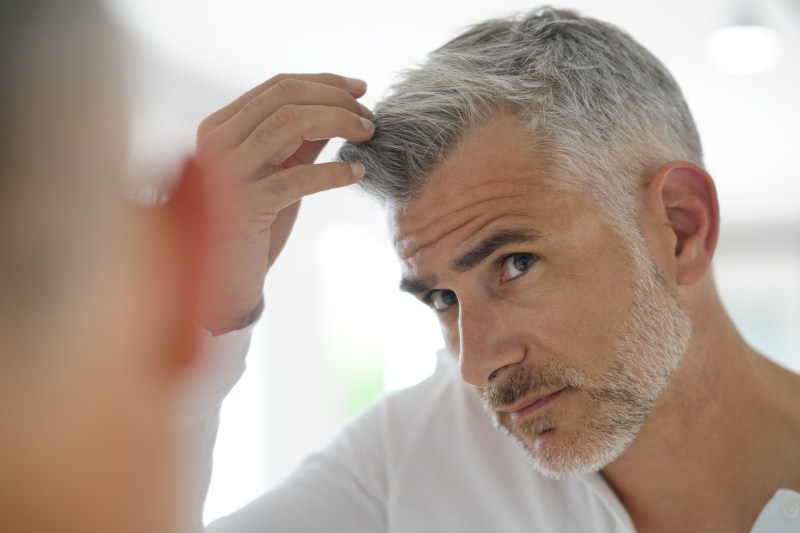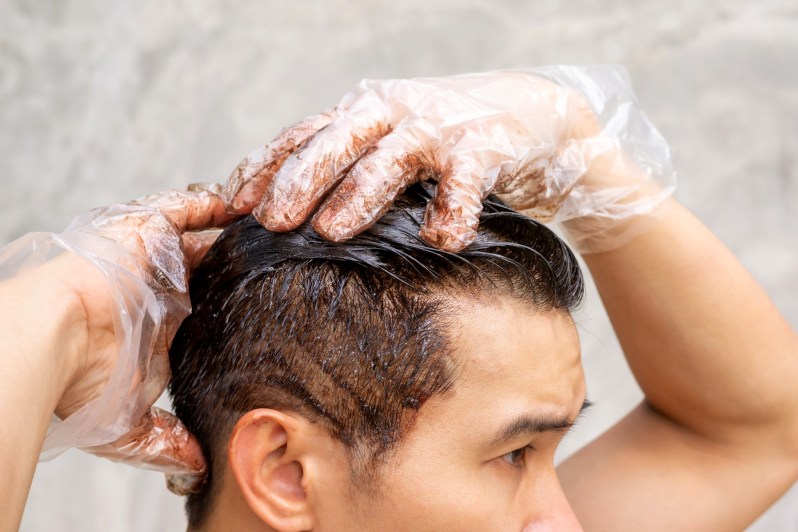
Researchers at NYU Grossman School of Medicine may have discovered an unexpected link between stem cells and gray hair. A new study, published in the journal Nature, points out that most humans and mice will develop gray or silver hair as they age. Researchers are now connecting this phenomenon to a common cell shared between both man and mice, called melanocyte stem cells. Understanding this type of cell more could be the link to reverse gray hair permanently — that is, if gray hair isn’t your thing.
The study lead investigator, Qi Sun, PhD, said in a press release for NYU Langone Health, “Our study adds to our basic understanding of how melanocyte stem cells work to color hair.” With researchers aware that melanocyte stem cells, or McSCs, are responsible for hair pigmentation, it could be possible to manipulate these cells in the future to reduce or halt completely the process of hair naturally graying as we age.

The study describes melanocyte stem cells as “a thin-layered system” that fails earlier than most other stem cells in the human body. This happens mainly for two reasons. McSCs have more “plasticity” than other skin cells, making them more rigid. Secondly, they need to be mobile in order to function properly. The combination of both these factors make for a “sticky” situation.
As hair continuously sheds and grows back over time, more McSCs get stuck to each other and are unable to mature. This means the bodily system responsible for hair pigmentation starts to fail, while the system for hair growth could continue to work for many years later.
“It is the loss of chameleon-like function in melanocyte stem cells that may be responsible for graying and loss of hair color,” said study senior investigator Mayumi Ito, PhD.
What does that mean for your hair?
With this knowledge, scientists are already looking into the next steps of restoring some mobility to the dormant stem cells. Making the cells mobile again would allow them to return back to their germ compartment, where they would again be able to produce pigment.
“These findings suggest that melanocyte stem cell motility and reversible differentiation are key to keeping hair healthy and colored,” said Dr. Ito.
It’s still a while away from being available to the general public, but understanding what causes the underlying problem is a major breakthrough in hair and skin science. Of course, not everybody will be rushing to get in line to get their pigmentation back. The silver fox community is one of the backbones of this society, and gray hair will continue to be cool no matter what.



